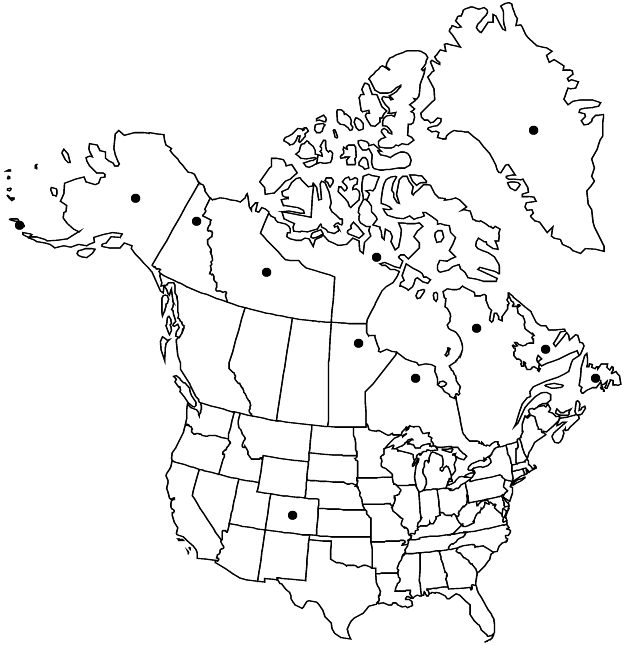Difference between revisions of "Armeria maritima subsp. sibirica"
Consp. Fl. Eur., 616. 1881.
FNA>Volume Importer |
FNA>Volume Importer |
||
| Line 14: | Line 14: | ||
|name=Armeria arctica | |name=Armeria arctica | ||
|authority=(Chamisso) Wallroth | |authority=(Chamisso) Wallroth | ||
| − | }}{{Treatment/ID/Synonym | + | }} {{Treatment/ID/Synonym |
|name=Armeria labradorica | |name=Armeria labradorica | ||
|authority=Wallroth | |authority=Wallroth | ||
| − | }}{{Treatment/ID/Synonym | + | }} {{Treatment/ID/Synonym |
|name=Armeria labradorica var. submutica | |name=Armeria labradorica var. submutica | ||
|authority=(S. F. Blake) H. F. Lewis | |authority=(S. F. Blake) H. F. Lewis | ||
| − | }}{{Treatment/ID/Synonym | + | }} {{Treatment/ID/Synonym |
|name=Armeria maritima subsp. arctica | |name=Armeria maritima subsp. arctica | ||
|authority=(Chamisso) Hultén | |authority=(Chamisso) Hultén | ||
| − | }}{{Treatment/ID/Synonym | + | }} {{Treatment/ID/Synonym |
|name=Armeria maritima subsp. labradorica | |name=Armeria maritima subsp. labradorica | ||
|authority=(Wallroth) Hultén | |authority=(Wallroth) Hultén | ||
| − | }}{{Treatment/ID/Synonym | + | }} {{Treatment/ID/Synonym |
|name=Armeria maritima var. labradorica | |name=Armeria maritima var. labradorica | ||
|authority=(Wallroth) G. H. M. Lawrence | |authority=(Wallroth) G. H. M. Lawrence | ||
| − | }}{{Treatment/ID/Synonym | + | }} {{Treatment/ID/Synonym |
|name=Armeria maritima var. sibirica | |name=Armeria maritima var. sibirica | ||
|authority=(Turczaninow) G. H. M. Lawrence | |authority=(Turczaninow) G. H. M. Lawrence | ||
| Line 47: | Line 47: | ||
|elevation=0-1200 m | |elevation=0-1200 m | ||
|distribution=Greenland;Man.;Nfld. and Labr.;N.W.T.;Nunavut;Ont.;Yukon;Alaska;Colo.;Eurasia. | |distribution=Greenland;Man.;Nfld. and Labr.;N.W.T.;Nunavut;Ont.;Yukon;Alaska;Colo.;Eurasia. | ||
| − | |discussion=<p>The population of subsp. sibirica in Colorado is found on Hoosier Ridge. Plants with calyces hairy throughout and hairy scapes appear in eastern North America east of approximately 100°W longitude mixed with plants with hairy calyx ribs and glabrous scapes. Plants from this area have been called var. labradorica; there is no taxonomic reason for this recognition (C. Lefèbvre and X. Vekemans 1995).</p> | + | |discussion=<p>The population of <i></i>subsp.<i> sibirica</i> in Colorado is found on Hoosier Ridge. Plants with calyces hairy throughout and hairy scapes appear in eastern North America east of approximately 100°W longitude mixed with plants with hairy calyx ribs and glabrous scapes. Plants from this area have been called var. labradorica; there is no taxonomic reason for this recognition (C. Lefèbvre and X. Vekemans 1995).</p> |
|tables= | |tables= | ||
|references= | |references= | ||
| Line 71: | Line 71: | ||
|publication year=1881 | |publication year=1881 | ||
|special status= | |special status= | ||
| − | |source xml=https://jpend@bitbucket.org/aafc-mbb/fna-data-curation.git/src/ | + | |source xml=https://jpend@bitbucket.org/aafc-mbb/fna-data-curation.git/src/8f726806613d60c220dc4493de13607dd3150896/coarse_grained_fna_xml/V5/V5_1231.xml |
|genus=Armeria | |genus=Armeria | ||
|species=Armeria maritima | |species=Armeria maritima | ||
Revision as of 17:36, 18 September 2019
Leaf blades hairy or glabrous. Scapes glabrous or hairy. Inflorescences: sheath length usually 0.5–0.75 times diam. of flower head; outer involucral bracts 0.5–0.75 times length of flower head. Flowers monomorphic: stigmas papillate, pollen coarsely reticulate; calyx hairy throughout or on ribs only. 2n = 18.
Phenology: Flowering summer.
Habitat: Gravelly tundras, flood plains, lakes and seashores, alpine meadows
Elevation: 0-1200 m
Distribution

Greenland, Man., Nfld. and Labr., N.W.T., Nunavut, Ont., Yukon, Alaska, Colo., Eurasia.
Discussion
The population of subsp. sibirica in Colorado is found on Hoosier Ridge. Plants with calyces hairy throughout and hairy scapes appear in eastern North America east of approximately 100°W longitude mixed with plants with hairy calyx ribs and glabrous scapes. Plants from this area have been called var. labradorica; there is no taxonomic reason for this recognition (C. Lefèbvre and X. Vekemans 1995).
Selected References
None.